Re-Imagining the Future of Waste
Waste – when it comes to climate change and environmental degradation it is both the problem and the solution. In particular, the residues of the agro-food sector pose one of the biggest challenges. Reducing this waste but also giving it a second life is key to transition towards a circular economy with minimal or zero waste, making the sector more resilient to crises such as the COVID-19 pandemic.
The global consumption of raw materials is repeatedly exceeding the Earth’s production. The Earth Overshoot day is a yearly reminder of that. By August 2020 – even though COVID-19 has contracted humanity ecological footprint – the global demand for ecological resources and services had already exceeded what the Earth can generate in a year.
The future is in waste
The perspective of waste as a dead road has to change. Shifting waste into a resource is at the core of the second Circular Economy Action plan presented by the European Commission this year. This plan gives the basis to a transition towards a climate-neutral, resource-efficient, and competitive economy. Giving a second life to waste is also an opportunity for companies because it can increase their profitability, while sheltering them from resource price fluctuations. Manufacturing firms spend on average about 40% on materials, according to the figures shared by the European Commission. This is an expenditure that would be reduced in a circular economic system. This model would give the opportunity to companies to improve their product lines and shorten the time required to bring products to the market.
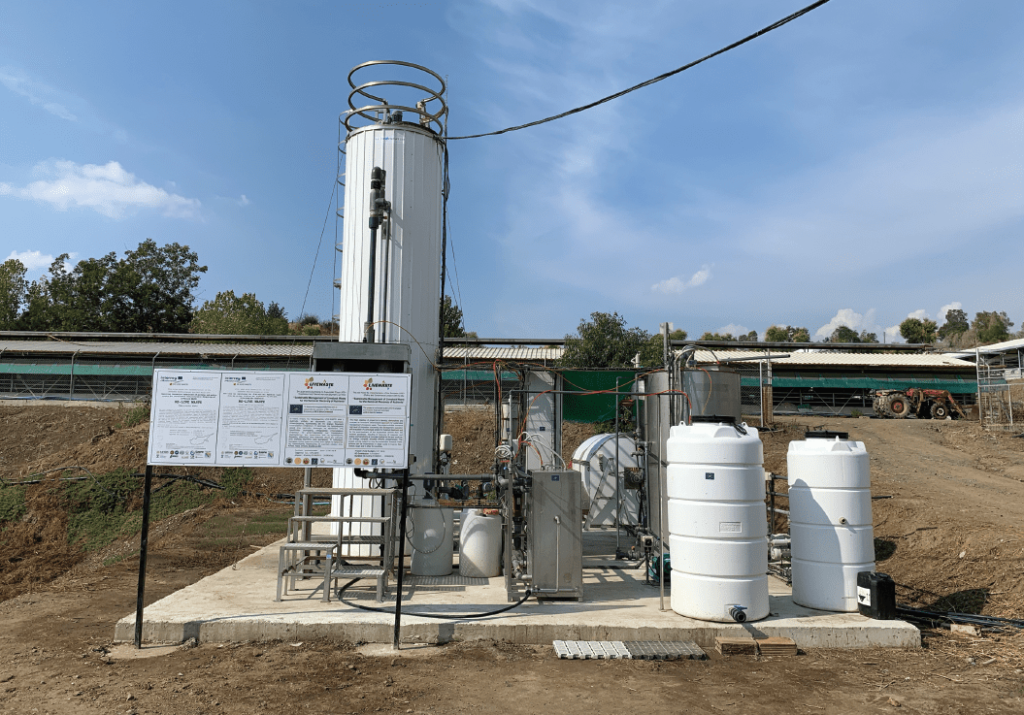
However, this new perspective towards waste would not only benefit businesses but also citizens. The circular economy will offer safe and high-quality products, respecting both the consumer and the environment raising many people’s quality of life. In addition, according to European Commission stats, the transition from a linear to a circular economy could increase European Union Gross Domestic Product (GDP) by an additional 0.5% by 2030, creating around 700.000 new jobs.
Livestock waste, the biggest challenge?
Livestock waste poses one of the biggest challenges in the transition towards a sustainable system. The growing global demand for meat has increased the environmental impact of the sector. In the Mediterranean, cattle and pig livestock farming has intensified over the last 40 years, resulting in large quantities of waste that require effective management.
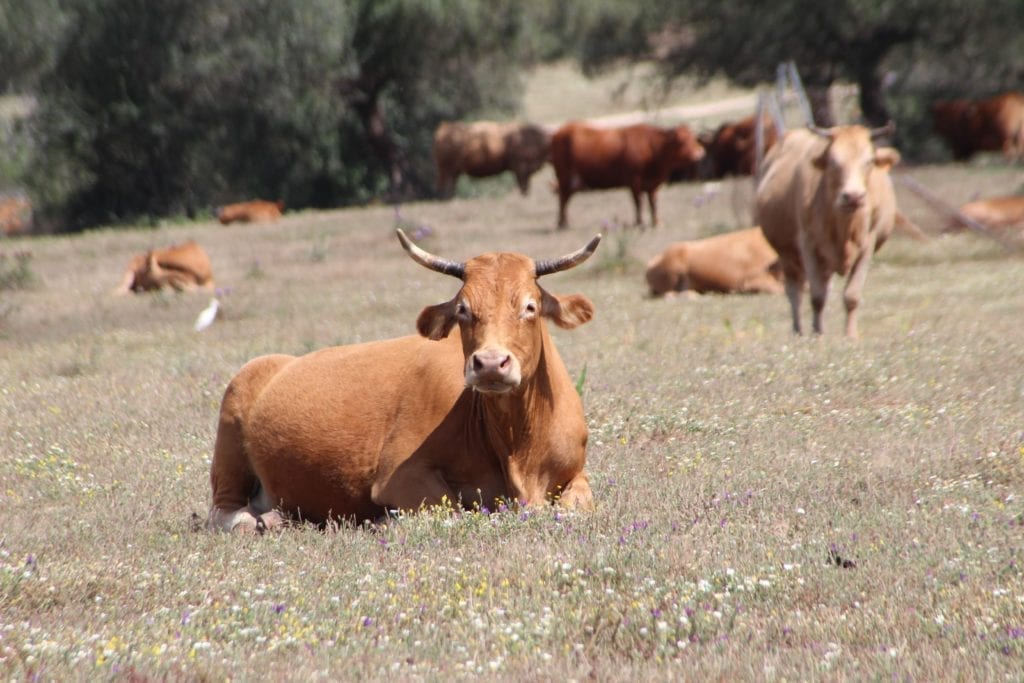
Livestock waste was already the main source of fertilization for agricultural lands but the dramatic volume increase has broken the sustainable cycle that farmers were applying in their traditional methods, impacting directly the nitrogen load in soil and the subsequent transfer to surface and groundwater resources. Nevertheless, the pressure to transition towards a sustainable agricultural sector is usually placed on farmers, making them responsible for changing the whole food system chain. But all stakeholders involved in the food value chain are accountable for shifting the current situation. The change to a sustainable food system will not happen unless:
- Consumers change their food choices;
- Policy-makers support this transition with the adequate legislation;
- Researchers find innovative solutions to solve key problems;
- Producers adapt to new regulations and consumer demand.
However “farmers are at the end of the line – making them particularly vulnerable”, declared Jordi Domingo Calabuig, project officer at Fundación Global Nature, one of the partners at RE-LIVE WASTE, an Interreg MED Green Growth Community (GGC) project, which is developing and testing innovative technologies to turn this livestock waste into an eco-friendly fertilizer called struvite.
The project pilot plants are located in Segorbe (Spain), Monagroulli (Cyprus), Arborea (Italy) and the suburbs of Sarajevo (Bosnia and Herzegovina) – regions characterized by intensive cattle and pig farming – thus producing large amounts of livestock waste that have become a major source of environmental pollution. The results arising from this testing will not provide a single solution for struvite production. But it is an opportunity for the farmers to adapt this technology to their own situations and needs at farm-level. This will enable a move towards an ‘open innovation’ paradigm that reduces the need for innovation-related capital investments.
Inorganic waste threatening sustainability
It is clear that organic waste – such as livestock residues – poses a huge challenge in managing waste in the agro-food sector. Yet a big part of the waste produced at the primary level in this sector is in the management of the inorganic fractions, especially in relation to plastics used in packaging and in greenhouses such as silage film, nylon, and bailing nets. These materials are normally poorly recycled and occasionally abandoned in natural areas, damaging local ecosystems.
The REINWASTE project, also part of the Interreg MED GGC, is testing innovative solutions for zero inorganic waste in the agro-food sector.
All stakeholders need to work together to change the current system
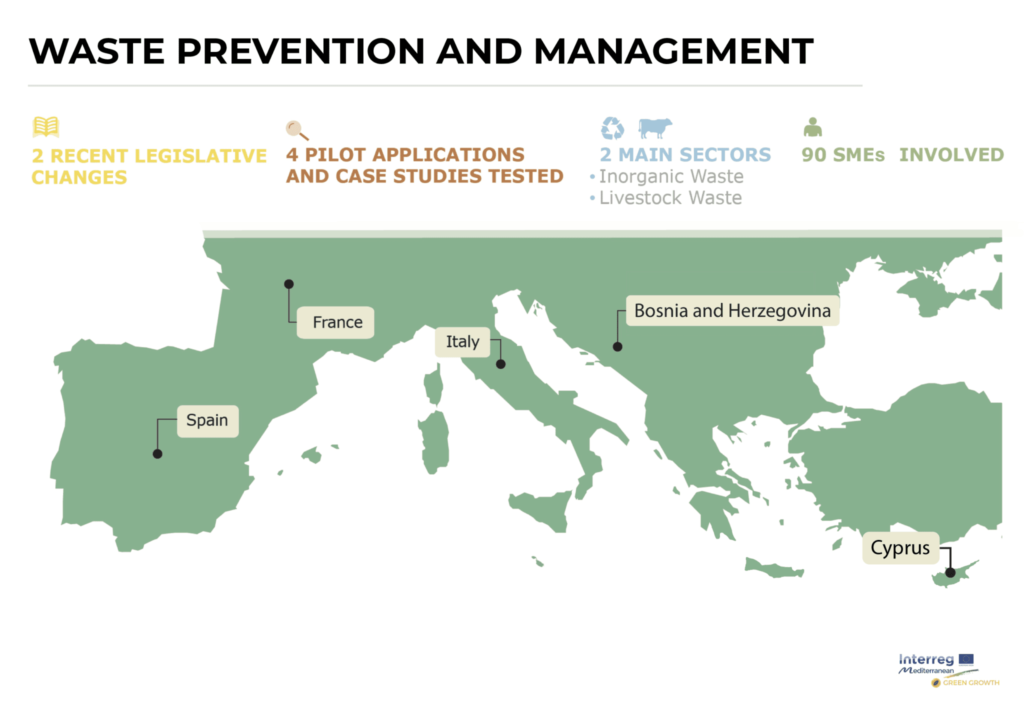
The testing of the project, carried out in 3 agro-food value chains (horticulture, meat and dairy sectors) in the Mediterranean, has provided knowledge on Best Available Technologies (BATs) and Key Enabling Technologies (KETs) that demonstrate sustainable solutions. These differ according to the sector, but they all show the way for a sustainable and zero waste food system.
Businesses and farmers are not the only ones responsible for agro-food waste – it is everyone’s responsibility.
A Zero Waste paradigm
The transition towards a circular economy is “irreversible” as the EU Circular Economy Action Plan states. The Interreg MED GGC works to push this change in the Mediterranean promoting innovation in the waste management field to shift to a minimal or zero waste system.
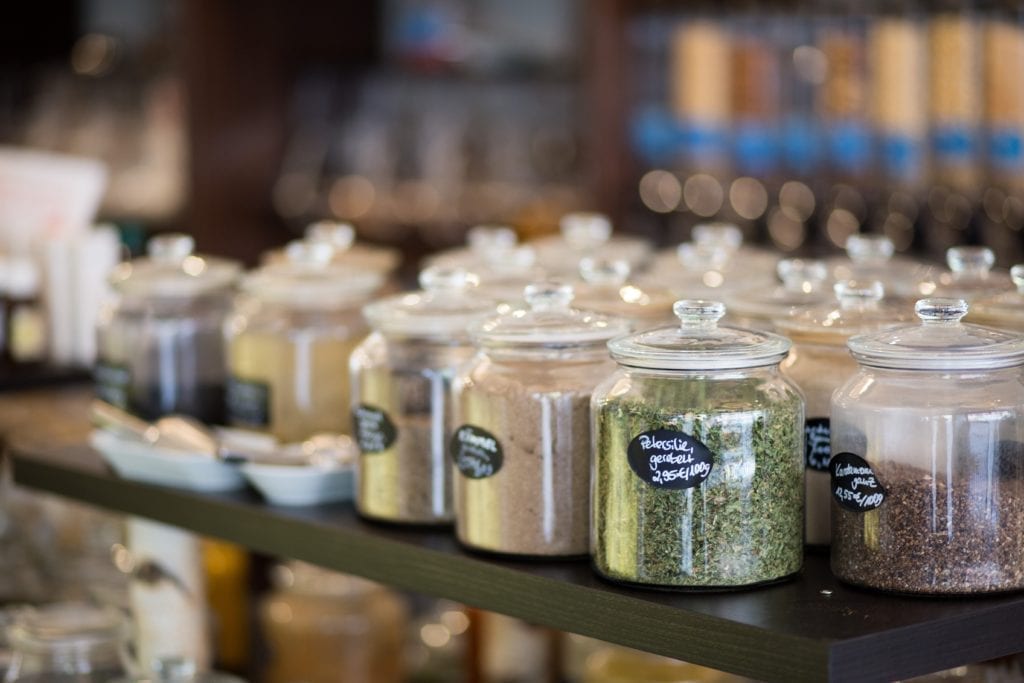
The GGC produced unified results and knowledge that are currently being capitalized on and transferred to key stakeholders, contributing to the achievement of targets in the EU Green Deal and in the strategies and legislations around it – such as Farm to Fork and the revised Common Agriculture Policy (CAP). But, as highlighted by the GGC, there are still barriers to that transition that need to be address.
On one hand, there is a lack of knowledge about affordable alternatives to inorganic waste across the agro-food sector, which is an important limitation as underlined by the REINWASTE project. And, on the other hand, unrealistic regulations can pose a big barrier as well, especially regarding organic waste. The GGC project RE-LIVE WASTE is working to ensure that future regulation will be reasonable and applicable in real farms to be able to convert organic waste into a valuable resource. That is why the GGC works to raise awareness among stakeholders and transfering knowledge about the best innovative solutions.
However, responsibility for this must be shifted to make the transition effective. Businesses and farmers are not the only ones responsible for agro-food waste, but it is everyone ́s responsibility. And we cannot forget the big role that policy makers play in the transition to a circular economy.
They are accountable for supporting industries and territories with effective policies aimed at achieving real progress towards waste prevention and management and support the transition to a sustainable system.
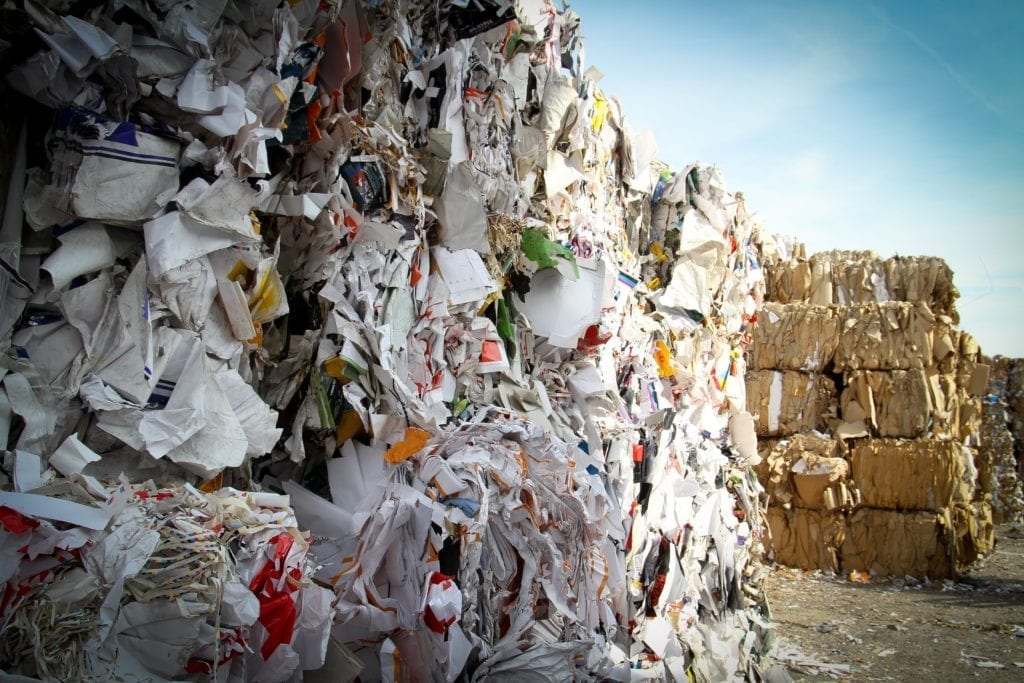
Therefore, all actors that make up the different value chains, beginning with the producer and ending with the consumer, must respond together to deliver an environmentally friendly waste management solution.
Learn more about the GGC projects outputs in the community capitalization platform: interregmedgreengrowth.eu.